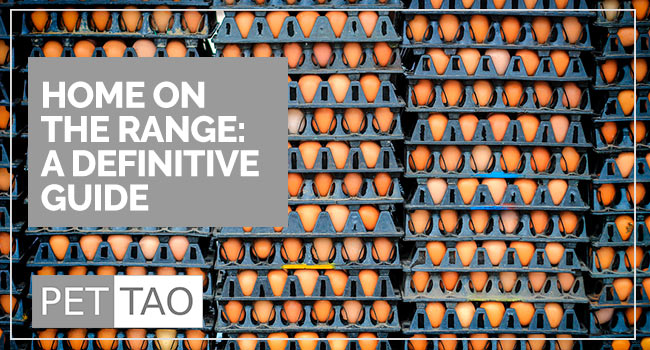Is Your Pet Food Factory Farmed?
At the grocery store, you see a variety of labels in the meat cooler.
Some say ORGANIC or FREE-RANGE or USDA CERTIFIED.
But what do these terms mean? Is one better than the other?
“Organic”, “free-range”, factory-farmed are popular marketing terms. While some believe these designations mean healthier foods, many argue they connotate no extra nutritional value.
Organic and free-range products appeal to those who seek eco-friendly options. However, they are often more expensive and not proven to provide increased healthfulness.
What do all these terms really mean?
The terms “holistic,” “premium,” and “natural” have no legal definitions.
According to the FDA:
“From a food science perspective, it is difficult to define a food product that is ‘natural’ because the food has probably been processed and is no longer the product of the earth. That said, FDA has not developed a definition for use of the term natural or its derivatives. However, the agency has not objected to the use of the term if the food does not contain added color, artificial flavors, or synthetic substances.”
USDA Terminology Requirements
The USDA provides the following descriptions for terms found on food labels:
- “Free-range” refers to poultry with access to the outside. But, “access to the outside” usually means there is a hole in the indoor enclosure leading to a small fenced-in yard.
- “No hormones administered” (beef) refers to beef products raised without hormones.
- “No hormones added” (pork or poultry) cannot be on pork or poultry unless followed by a statement that says “Federal regulations prohibit the use of hormones.” Hormones are not allowed in raising hogs or poultry.
- “No antibiotics added” (red meat and poultry) refers to meat or poultry raised without antibiotics.
- “Natural” products mean the products are free of artificial ingredient or added color and are only minimally processed. Minimal processing means that the product was not fundamentally altered. The label must include a statement explaining the meaning of the term natural (such as “no artificial ingredients; minimally processed”).
- “100 percent organic” can label on any product that contains 100 percent organic ingredients (excluding salt and water, which are natural).
- “Organic” can label any product that contains a minimum of 95 percent organic ingredients (excluding salt and water).
- “Made with Organic ______” can label a product that contains at least 70 percent organically produced ingredients (excluding salt and water).
- “Certified” refers to meat products evaluated for class, grade, or other quality characteristics (e.g., “Certified Angus Beef”).
- Manufacturers are not allowed to use the term“Chemical-Free” on labels.
Factory Farmed is industrial farming by agribusinesses who raise livestock at high stocking densities.
Are the meats in our treats from free-range animals or regular USDA factory farmed animals?
Wisconsin Freeze-Dried, a meatpacker in Wisconsin, provides our meats.
They do not claim to be “free-range”.
WFD pasture-raises their cattle for the first 12-18 months.
Then, they transport the cattle to feedlots for 3 months.
Are organic or free-range more nutritious than traditional methods?
Organic refers to the way farmers grow and process foods without using conventional methods to fertilize and control weeds. This may include using crop rotation or mulch to manage weeds.
A recent study by the U.S. National Library of Medicine National Institutes of Health examining the past 50 years’ worth of scientific articles about the nutrient content of organic and conventional foods revealed the two are not significantly different in their nutrient content.
However, in the pursuit of sustainability, organic farmers avoid the use of synthetic petrochemical fertilizers and pesticides, hormones, antibiotics, and genetically modified organisms.
Factory Farmed Vs. Free-Range Poultry
Regarding free-ranged poultry, a Poultry Science study revealed“free-range” chicken eggs are no more nutritionally valuable than “cage-kept” chicken eggs.
We understand ingredient selection and recipe choices are important factors in choosing your pet’s diet.
Our customers are curious and selective consumers, which is why we want to be transparent about our pet food line.
If you would like to have more control of the meats in your pet food, try cooking at home– it’s easier than you think!








